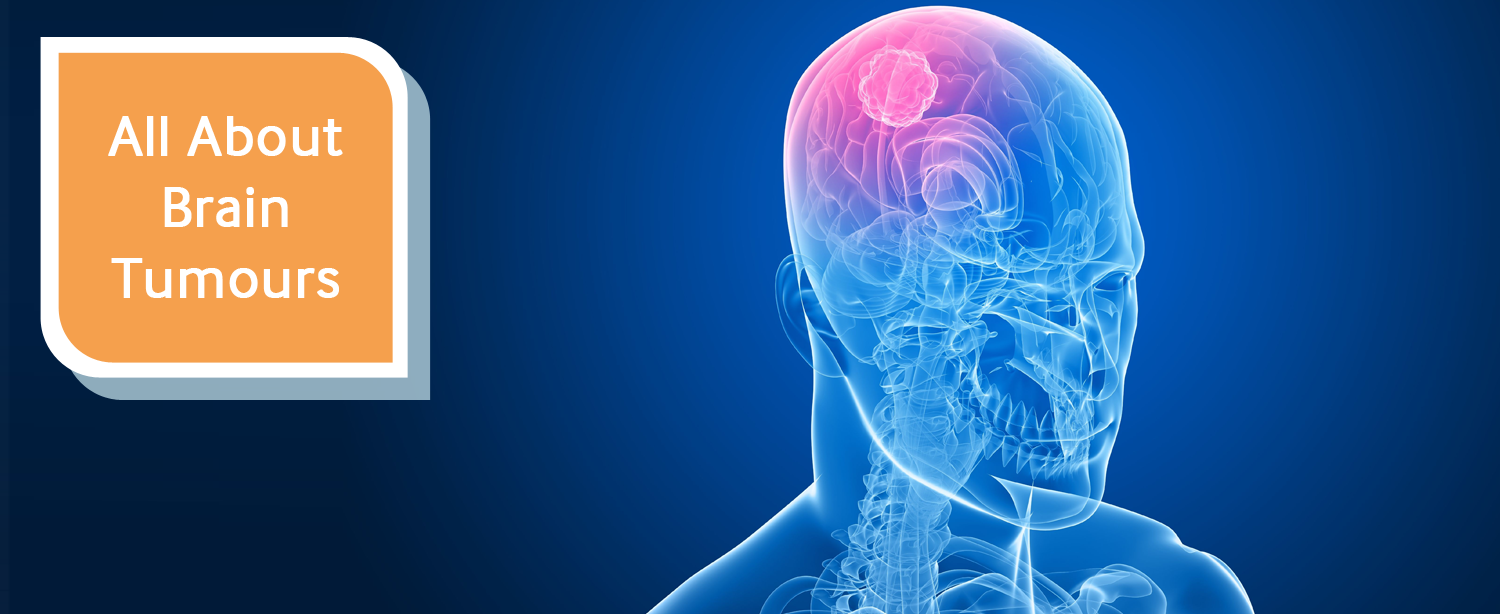A tumour is a mass of tissue that’s formed by an accumulation of abnormal cells. Normally, the cells in your body age, die and are replaced by new cells. With cancer and other tumours, something disrupts this cycle. Tumour cells grow, even though the body does not need them, and unlike normal old cells, they don’t die. As this process goes on, the tumour continues to grow as more and more cells are added to the mass.
Primary brain tumours emerge from the various cells that make up the brain and central nervous system and are named for the kind of cell in which they first form. The second most common type of adult brain tumours is meningeal tumours. These form in the meninges, the thin layer of tissue that covers the brain and spinal cord.
What’s the Difference Between Benign and Malignant Brain Tumours?
Benign brain tumours are noncancerous. Malignant primary brain tumours are cancers that originate in the brain, typically grow faster than benign tumours, and aggressively invade surrounding tissue. Although brain cancer rarely spreads to other organs, it can spread to other parts of the brain and central nervous system.
Symptoms of a brain tumour
Symptoms of brain tumours depend on the location and size of the tumour. Some tumours cause direct damage by invading brain tissue and some tumours cause pressure on the surrounding brain. You’ll have noticeable symptoms when a growing tumour is putting pressure on your brain tissue.
Headaches are a common symptom of a brain tumour. You may experience headaches that:
- are worse in the morning when waking up
- occur while you’re sleeping
- are made worse by coughing, sneezing, or exercise
You may also experience:
- vomiting
- blurred vision or double vision
- confusion
- seizures (especially in adults)
- weakness of a limb or part of the face
- a change in mental functioning
Other common symptoms include:
- clumsiness
- memory loss
- confusion
- difficulty writing or reading
- changes in the ability to hear, taste, or smell
- decreased alertness, which may include drowsiness and loss of consciousness
- difficulty swallowing
- dizziness or vertigo
- eye problems, such as drooping eyelids and unequal pupils
- uncontrollable movements
- hand tremors
- loss of balance
- loss of bladder or bowel control
- numbness or tingling on one side of the body
- trouble speaking or understanding what others are saying
- changes in mood, personality, emotions, and behaviour
- difficulty walking
- muscle weakness in the face, arm, or leg
Sometimes, you may not have any symptoms to begin with or they may only develop very slowly over time.
Risk Factors
The cause of most brain tumours is unknown, but there are a number of risk factors that may increase your chances of developing a brain tumour.
- age – the risk of getting a brain tumour increases with age, although some types of brain tumour are more common in children
- radiation – children who’ve had cancer have a higher risk of getting a brain tumour in later life; adults who’ve had leukaemia or non-Hodgkin lymphoma also have an increased risk
- radiation – exposure to radiation accounts for a very small number of brain tumours; some types of brain tumour are more common in people who’ve had radiotherapy, CT scans or X-rays to the head
- family history and genetic conditions – some genetic conditions are known to increase the risk of getting a brain tumour, including tuberous sclerosis, neurofibromatosis type 1, neurofibromatosis type 2 and Turner syndrome
- HIV or AIDS
Outlook
If you have a brain tumour, your outlook will depend on a number of factors including:
- your age
- the type of tumour you have
- where it is in your brain
- how effective the treatment is
- your general level of health
Generally, around 15 out of every 100 people with a cancerous brain tumour will survive for five years or more after being diagnosed. For more, visit: https://www.kokilabenhospital.com/departments/centresofexcellence/centrefor_neurosciences/braintumor.html


